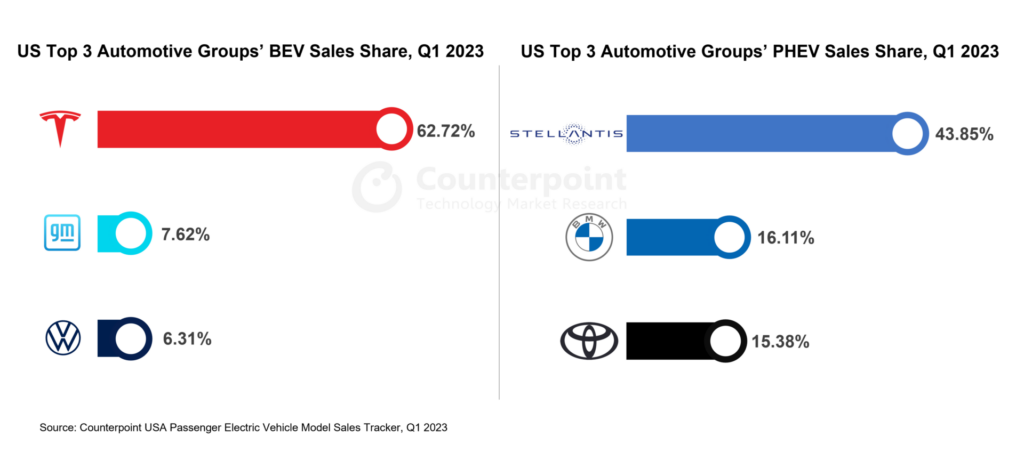Title: The Electric Leap: An In-Depth Examination of EV Growth in the US
Electric vehicles (EVs) have become an unstoppable force in the US car market, with sales rocketing by a striking 79% YoY in the first quarter of 2023.. This remarkable growth has enabled the US to overtake Germany, becoming the world’s second-largest EV market after China.
The surge in EV sales can be primarily ascribed to the burgeoning popularity of Battery EVs (BEVs), which constituted a whopping 81% of all passenger EV sales. Moreover, Plug-in Hybrid EVs (PHEVs) are also leaving their mark on American roads. A notable contributor to this trend is Tesla, which sold more EVs than the next 18 automotive groups combined in the same quarter.
Research Analyst Abhik Mukherjee highlights that the boom in EV sales coincides with the US economy’s recovery from a period of lower inflation and improving consumer sentiment. Interestingly, while EV sales soared, sales of traditional passenger vehicles remained flat. This suggests a shifting dynamic in consumer preferences, with an increasing number of buyers being drawn towards the benefits offered by EVs.

One of the primary factors driving this change is the introduction of a substantial EV tax credit of up to $7,500. This incentive has played a crucial role in encouraging motorists to make the switch to EVs. At present, around 20 models offered by Tesla, GM, Ford, Stellantis, Rivian, and Volkswagen are eligible for this tax credit. However, due to strict eligibility conditions set by the US government, brands such as Hyundai, Nissan, BMW, Audi, and Volvo are not included in the EV tax credit scheme for 2023.
The domination of the EV market is also evident in the best-selling models. The top 10 EV models in the US represented 69% of overall passenger EV sales during the quarter. Tesla’s Model Y not only retained its title as the best-selling EV model, but it also became the best-selling passenger car model globally.
Looking to the future, Research Director Jeff Fieldhack predicts that as the US economy continues to recover, the EV sector will be bolstered by government policies enacted last year. The availability of tax credits for both new and used EVs, investments in streamlining the EV battery supply chain, the establishment of an expansive network of EV charging stations, and the creation of battery recycling plants nationwide will all contribute to increased EV sales growth. Consequently, if economic conditions continue improving, US EV sales are expected to reach around 1.5 million units in 2023.
Photo by Hilbert Hill on Unsplash
